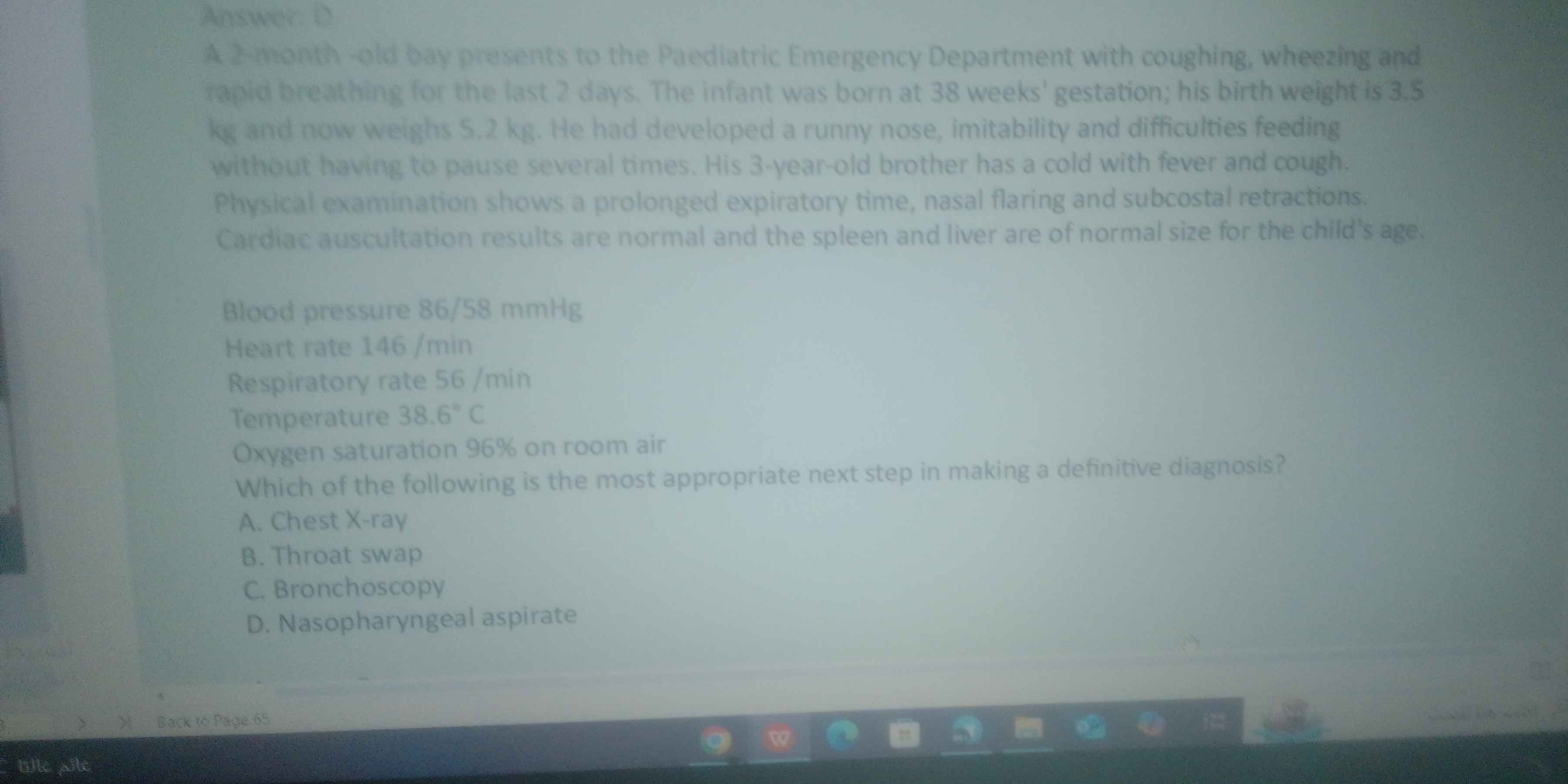A 2-month-old bay presents to the Paediatric Emergency Department with coughing, wheezing and rapid breathing for the last 2 days. The infant was born at 38 weeks' gestation; his b... A 2-month-old bay presents to the Paediatric Emergency Department with coughing, wheezing and rapid breathing for the last 2 days. The infant was born at 38 weeks' gestation; his birth weight is 3.5 kg and now weighs 5.2 kg. He had developed a runny nose, imitability and difficulties feeding without having to pause several times. His 3-year-old brother has a cold with fever and cough. Physical examination shows a prolonged expiratory time, nasal flaring and subcostal retractions. Cardiac auscultation results are normal and the spleen and liver are of normal size for the child's age. Blood pressure 86/58 mmHg, Heart rate 146 /min, Respiratory rate 56 /min, Temperature 38.6° C, Oxygen saturation 96% on room air. Which of the following is the most appropriate next step in making a definitive diagnosis? A. Chest X-ray B. Throat swap C. Bronchoscopy D. Nasopharyngeal aspirate

Understand the Problem
The question describes a clinical scenario of a 2-month-old infant presenting with symptoms suggestive of a respiratory issue. It provides the patient's history, physical examination findings, and vital signs. The question asks to find the most appropriate next step in making a definitive diagnosis.
Answer
The final answer is D. Nasopharyngeal aspirate
The most appropriate next step is D. Nasopharyngeal aspirate
Answer for screen readers
The most appropriate next step is D. Nasopharyngeal aspirate
More Information
Based on the symptoms, the infant most likely has bronchiolitis, which is commonly caused by respiratory syncytial virus (RSV). A nasopharyngeal aspirate is the most appropriate next step to confirm the diagnosis.
Tips
A common mistake is choosing a chest X-ray, but it is not typically necessary for diagnosing bronchiolitis unless there are concerns for pneumonia or other complications.
Sources
- [PDF] Pediatrics-Final - Doctor 2018 - doctor2018.jumedicine.com
AI-generated content may contain errors. Please verify critical information